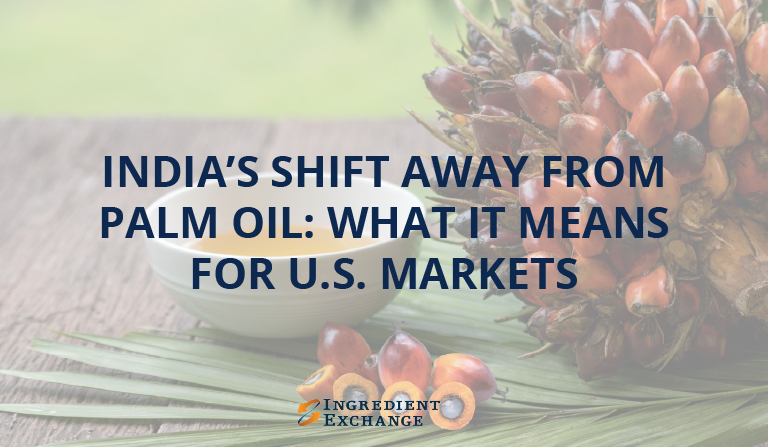A recent report from Reuters highlights a significant shift in the global vegetable oil trade: India, the world’s largest importer of vegetable oils, has reduced its palm oil imports to the lowest levels in five years, favoring “soft oils” like soybean and sunflower oil for the first time ever in its annual import breakdown.
This change in buying behavior has ripple effects far beyond India — and U.S. markets are likely to feel the impact.
What’s Driving the Shift?
Several factors have contributed to India’s pivot:
- Health and consumer preferences: Indian consumers increasingly favor oils perceived as healthier, particularly sunflower and soybean oils.
- Price competitiveness: Sunflower oil prices dropped in 2024 due to increased supplies from Ukraine, making it more attractive.
- Government policies and taxes: India’s import duties and seasonal tariffs tend to influence the purchasing strategy of refiners, often leading to opportunistic buying when soft oils are competitively priced.
Potential Implications for the U.S. Palm Oil Market
Even though the U.S. is not a major importer of palm oil compared to India, global supply and demand shifts always affect pricing, inventory decisions, and buying behavior in secondary and industrial markets. Here’s how:
1. Global Surpluses Could Lower Prices
If India, the largest palm oil buyer, cuts demand, global palm oil inventories may build up — especially in producing countries like Indonesia and Malaysia. This could result in downward price pressure, opening up buying opportunities for U.S. industrial users in food, personal care, and biofuel applications.
2. Soft Oil Prices Could Stay Elevated
As India increases its demand for soybean and sunflower oils, it could put upward pressure on prices for these oils globally — which matters for U.S. buyers of soybean oil and related products. Buyers in food processing, snacks, and packaged goods may face tighter supply or higher costs.
3. Feedstock Impacts for Renewable Fuels
Palm oil is sometimes considered in the mix for renewable diesel and biodiesel production, though it’s subject to sustainability restrictions in U.S. and European markets. A global surplus could spur price-based consideration — though ESG concerns will continue to limit widespread adoption in the U.S.
4. Market Volatility and Hedging Opportunities
Any major change in the global vegetable oil trade introduces volatility. For U.S. traders and buyers, this is both a risk and an opportunity. Understanding shifts in Indian purchasing behavior allows U.S. firms to anticipate global pricing trends and make informed buying or hedging decisions.
How Ingredient Exchange Can Help
At Ingredient Exchange, we monitor global trends like these to help our partners make strategic decisions. Whether you’re sourcing palm oil or have surplus oil that you need to sell, understanding what’s happening in major import hubs like India can help you optimize timing, pricing, and product substitution.
Let us help you take advantage of changing price dynamics, reach out to Ingredient Exchange today.
